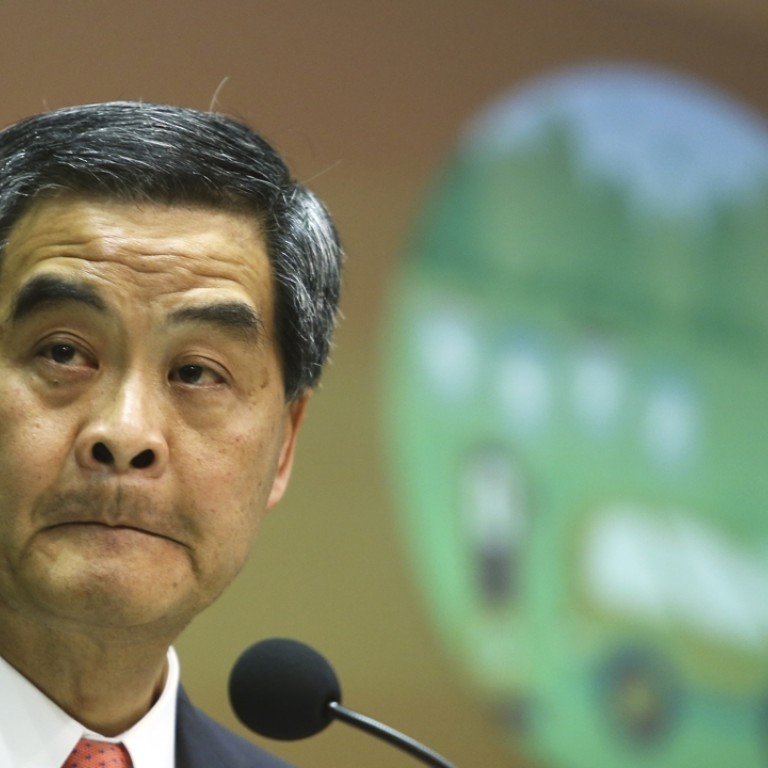
Hong Kong leader CY Leung’s two-hour-long policy address was all talk and no substance
Gary Cheung says the chief executive managed to avoid contentious issues, unlike his predecessor Donald Tsang, who should be given credit for his tough stance on minimum wage legislation
Chief Executive Leung Chun-ying’s fourth policy address has gone down in Hong Kong history as the longest policy blueprint since the handover. His last full-year policy speech had 261 paragraphs, compared with 171 in his predecessor Donald Tsang Yam-kuen’s 2010 policy blueprint. The first chief executive, Tung Chee-hwa, who resigned in March 2005, penned just 83 paragraphs in his 2004 address.
It took Leung two hours to deliver his speech while, on the same day, US President Barack Obama spent just 58 minutes presenting his final State of the Union address, on domestic and global issues.
Leung peppered his speech with piecemeal measures to tackle livelihood issues. He promised to use IT to give pedestrians, namely the elderly and needy, more time to cross roads. He announced the government would provide larger toilet cubicles in new facilities for the elderly.

How to mend relations between the executive and legislative branches was conspicuous by its absence while Leung also failed to tell the public what will be done after the end of the consultation on retirement protection, which also covers the controversial offset mechanism.
It is natural for Leung to avoid controversial issues as he cannot afford to offend the business sector, given that he is widely expected to seek re-election next year. Since pledging, in his manifesto for the 2012 chief executive election, to tackle the offset payments issue, Leung has been stressing the need to forge a consensus among labour and business sectors and warned against making a rash decision.
READ MORE: Leung’s vision for Hong Kong, of better public toilets and longer green lights at crossings, is decidedly pedestrian

When he delivered his 2008 policy address, Tsang did not try to use delaying tactics by telling the public that a three- or six-month review would start and then the government would seek to forge a consensus in the community. Instead, he said the government had already completed a review of the voluntary movement, which had found the outcome to be unsatisfactory, and decided to go for an across-the-board statutory minimum wage. It came into effect on May 1, 2011.
Tsang, who was blamed for not doing enough to close the wealth gap during his seven years in power, deserves credit for getting things done on this crucial issue to protect low-income workers. At the end of the day, leadership is about tackling tough issues head-on. A leader will be remembered for his groundbreaking decisions, rather than for providing larger toilet cubicles for the elderly.
Gary Cheung is the Post’s political editor

